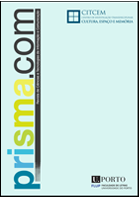Knowledge Organization System and Post-Disciplinarity:
Climate Change and COVID-19 in the context of the 2030 Agenda
Abstract
The study was inspired by the theoretical approaches of Beghtol, Buckland, Kleinberg, and Hjørland to discuss knowledge representation on Climate Change and COVID-19 in the context of Agenda 2030. This exploratory research was based on bibliometric methods through VOSviewer and CitNetexplorer tools to analyze the terms Climate Change and COVID-19, in the databases Scopus, Web of Science, and Dimensions, in the period 2019-2020. Approaches 7 and 8 of domain analysis were used to discuss the knowledge of disciplinarity and to identify the emergence of domains. Data collected from Brazil National Council for Scientific and Technological Development, in the Lattes Platform and Directory of Research Groups, were added for analysis purposes. The conclusion pointed out that Climate Change and COVID-19 can be considered emerging domains, suggesting a possible post-disciplinary model. The 2030 Agenda reinforces the importance of international cooperation and a commitment to exchange information on scientific communities and other communities that discuss sustainable solutions to global problems such as Climate Change and COVID-19.
Downloads
Published
How to Cite
Issue
Section
License

This work is licensed under a Creative Commons Attribution 4.0 International License.
A PRISMA.COM fornece acesso livre, imediato e gratuito ao conteúdo das suas publicações no sentido de apoiar o compartilhamento global de conhecimento, sendo as suas edições publicadas sob a licença Creative Commons Attribution (CC BY 4.0).
Autores que publicam nesta revista concordam com os seguintes termos:
- Autores conservam os direitos de autor e concedem à revista o direito de primeira publicação, com o trabalho simultaneamente licenciado sob a Licença Creative Commons Attribution que permite a partilha do trabalho com reconhecimento da autoria e publicação inicial nesta revista.
- Autores têm autorização para assumir contratos adicionais separadamente, para distribuição não-exclusiva da versão do trabalho publicada nesta revista (ex.: publicar em repositório institucional ou como capítulo de livro), com reconhecimento de autoria e publicação inicial nesta revista.
- Autores têm permissão e são estimulados a publicar e distribuir o seu trabalho online (ex.: em repositórios institucionais ou na sua página pessoal) a qualquer ponto antes ou durante o processo editorial, já que isso pode gerar alterações produtivas, bem como aumentar o impacto e a citação do trabalho publicado (Veja O Efeito do Acesso Livre).






